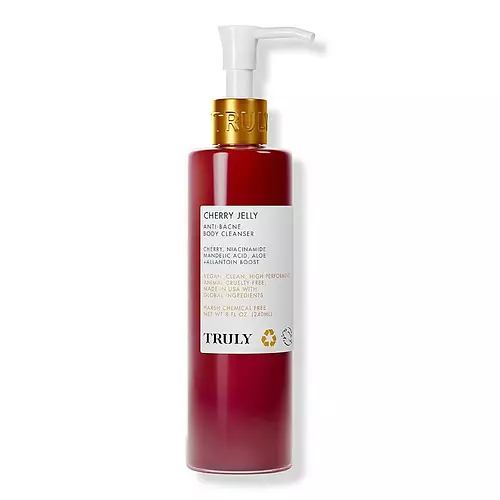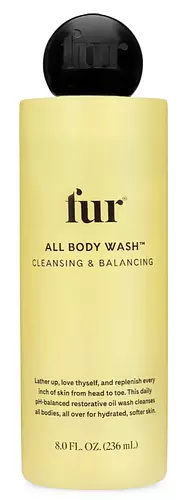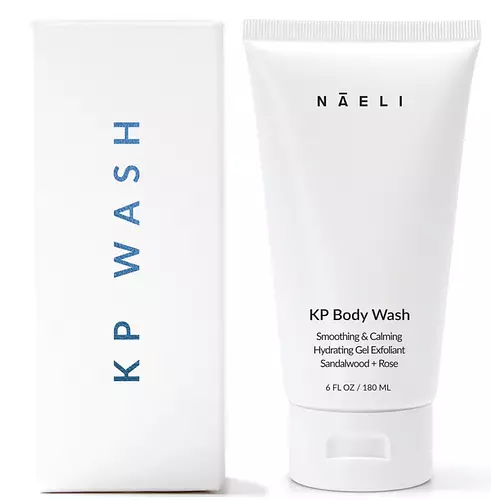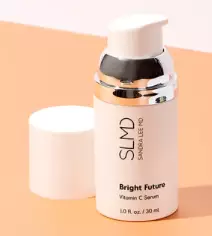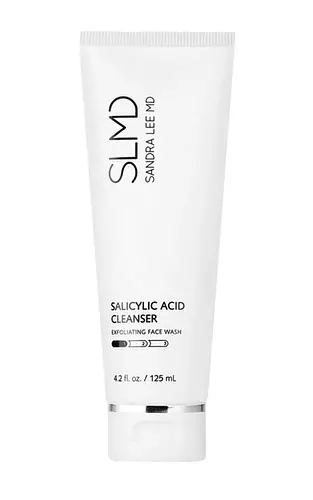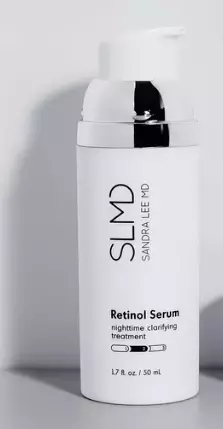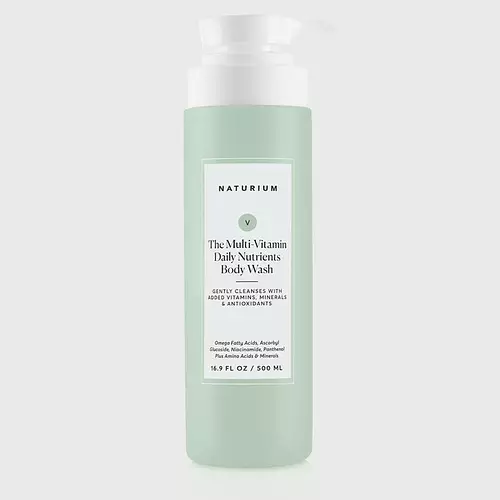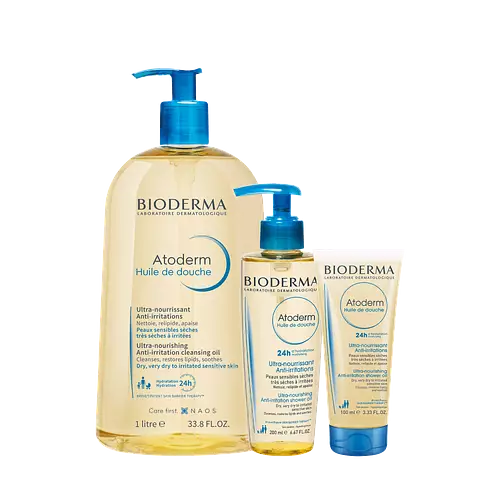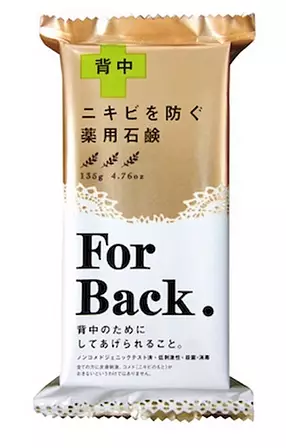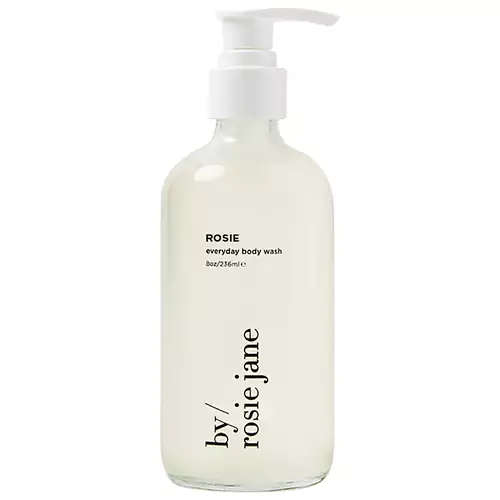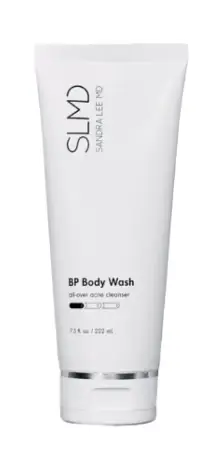
SLMD BP Body Wash Ingredients Explained
Updated on June 01, 2024 Submitted by bradley_gilbert
Overview
What it is
Body wash with 26 ingredients that contains AHA, benzoyl peroxide, niacinamide, peptides and Vitamin E
Cool Features
It is cruelty-free and reef safe
Suited For
It has ingredients that are good for fighting acne, brightening skin, sensitive skin, oily skin, reducing pores, scar healing, dark spots and better texture
Free From
It doesn't contain any harsh alcohols, parabens, silicones or sulfates
Fun facts
SLMD is from United States.
We independently verify ingredients and our claims are backed by peer-reviewed research. Does this product need an update? Let us know.
Body wash with 26 ingredients that contains AHA, benzoyl peroxide, niacinamide, peptides and Vitamin E
Quick info
You should know
Notable Ingredients
This product contains 2 ingredients that may have this attribute:
This product contains 1 ingredient that may have this attribute:
This product contains 1 ingredient that may have this attribute:
This product contains 1 ingredient that may have this attribute:
This product contains 2 ingredients that may have this attribute:
Benefits
This product contains 1 ingredient that may have this attribute:
This product contains 3 ingredients that may have this attribute:
This product contains 1 ingredient that may have this attribute:
This product contains 3 ingredients that may have this attribute:
This product contains 1 ingredient that may have this attribute:
This product contains 2 ingredients that may have this attribute:
This product contains 2 ingredients that may have this attribute:
This product contains 4 ingredients that may have this attribute:
Concerns
This product contains 1 ingredient that may have this attribute:
This product contains 1 ingredient that may have this attribute:
This product contains 1 ingredient that may have this attribute:
This product contains 4 ingredients that may have this attribute:
This product contains 3 ingredients that may have this attribute:
This product contains 1 ingredient that may have this attribute:
Ingredients 26
Benzoyl Peroxide is famous for fighting acne. This is because it does a variety of tasks on the skin: it helps reduce excess oil, kill bacteria, and clear out dead skin cells. In other words, it is effective at unclogging pores.
Water. It's the most common cosmetic ingredient of all. You'll usually see it at the top of ingredient lists, meaning that it makes up the largest part of the product.
Sodium C14-16 Olefin Sulfonate is a cleansing agent made from a mixture of long chain sulfonate salts. It can also help produce foam.
Coco-Betaine is the natural version of Cocamidopropyl Betaine. It is often derived from coconuts.
Acrylates/C10-30 Alkyl Acrylate Crosspolymer is a synthetic polymer. It is used to thicken and improve the texture of products.
Niacinamide has emerged as an all-star ingredient due to its many benefits.
Mandelic Acid helps exfoliate skin. It also contains antioxidant properties.
Malic Acid is an AHA derived from unripe fruit. The word "Malic" comes from the word "Malum". In Latin, "Malum" means apple.
Carthamus tinctorius seed oil comes from safflower, one of humanity's oldest crops.
Panthenol (also referred to as pro-vitamin B5) is a common ingredient that helps hydrate and soothe the skin.
Aloe Barbadensis Leaf Extract is an extract of the leaves of the aloe, Aloe barbadensis, Liliaceae.
Allantoin plays a role in soothing and moisturizing the skin. Because of this, it is often added to products with strong active ingredients.
Tocopheryl Acetate is AKA Vitamin E. It is an antioxidant and protects your skin from free radicals. Free radicals damage the skin by breaking down collagen.
Myristoyl Tetrapeptide-13 isn't fungal acne safe and is a peptide.
Lauric Acid is a fatty acid or lipid. About half of fatty acids in coconut oil is lauric acid.
Beta-Glucan is a polysaccharide. It can be derived from the cell walls of seaweed, oats, yeast, and fungi.
Butylene Glycol (or BG) is used within cosmetic products for a few different reasons:
This oil is derived from the leaves of Eucalyptus Globulus, a type of Eucalyptus tree native to Australia.
Pentylene glycol is typically used within a product to thicken it. It also adds a smooth, soft, and moisturizing feel to the product. It is naturally found in plants such as sugar beets.
Phenoxyethanol is a preservative that has germicide, antimicrobial, and aromatic properties. Studies show that phenoxyethanol can prevent germ and microbial growth. By itself, it has a scent that is similar to that of a rose.
Caprylyl Glycol is a humectant and emollient, meaning it attracts and preserves moisture.
Benzoyl Peroxide 5%, Water, Sodium C14-16 Olefin Sulfonate, Coco-Betaine, Acrylates/C10-30 Alkyl Acrylate Crosspolymer, Cocoyl Argininamide, Niacinamide, Mandelic Acid, Malic Acid, Carthamus Tinctorius Seed Oil, Syringa Vulgaris Extract, Panthenol, Aloe Barbadensis Leaf Extract, Allantoin, Tocopheryl Acetate, Myristoyl Tetrapeptide-13, Myristoyl Hexapeptide-23, Lauric Acid, Lactobacillus Ferment Lysate, Beta-Glucan, Butylene Glycol, Eucalyptus Globulus Leaf Oil, Pentylene Glycol, Hydroxyphenyl Propamidobenzoic Acid, Phenoxyethanol, Caprylyl Glycol
Ingredient Ratings
Based on the number of likes and dislikes each ingredient has received.
Ingredients Explained
Benzoyl Peroxide is famous for fighting acne. This is because it does a variety of tasks on the skin: it helps reduce excess oil, kill bacteria, and clear out dead skin cells. In other words, it is effective at unclogging pores.
These properties make it great at fighting different types of acne, including cystic and inflammatory types of acne.
When targeting the bacteria in your pores, Benzoyl Peroxide has been shown to kill the bacteria without causing sensitivity. It also helps keep your skin's natural bacteria and biome balanced. Having a healthy biome protects your skin from external harmful factors.
Once Benzoyl Peroxide is absorbed into the skin, our bodies turn it into benzoic acid and quickly exits in urine.
When using Benzoyl Peroxide, it may be irritating for some people due to a variety of reasons, such as a broken skin barrier or just an allergic reaction. We recommend speaking with a professional about using this ingredient if you have concerns.
Learn more about Benzoyl PeroxideWater. It's the most common cosmetic ingredient of all. You'll usually see it at the top of ingredient lists, meaning that it makes up the largest part of the product.
So why is it so popular? Water most often acts as a solvent - this means that it helps dissolve other ingredients into the formulation.
You'll also recognize water as that liquid we all need to stay alive. Talk about multi-purpose! If you see this, drink a glass of water. Stay hydrated!
Learn more about WaterSodium C14-16 Olefin Sulfonate is a cleansing agent made from a mixture of long chain sulfonate salts. It can also help produce foam.
This ingredient may be drying. We recommend speaking with a professional if you have concerns.
Coco-Betaine is the natural version of Cocamidopropyl Betaine. It is often derived from coconuts.
Coco-Betaine is a surfactant, meaning it helps remove dirt and oil from the skin.
Acrylates/C10-30 Alkyl Acrylate Crosspolymer is a synthetic polymer. It is used to thicken and improve the texture of products.
Acrylates/C10-30 Alkyl Acrylate Crosspolymer is also an emulsifier. Due to its properties, it can prevent water and oil ingredients from separating.
We don't have a description for Cocoyl Argininamide.
Niacinamide has emerged as an all-star ingredient due to its many benefits.
It is known to treat acne by reducing inflammation. It also helps fade dark-spots and strengthen the skin by promoting the growth of the ceramide barrier.
Other benefits include smoothing wrinkles and minimizing redness.
The cherry on top? Niacinamide can also help build keratin, a protein that keeps skin firm.
When incorporating niacinamide into your routine, look out for concentration amounts. Typically, 5% niacinamide provides benefits such as fading dark spots. However, if you have sensitive skin, it is better to begin with a smaller concentration.
Niacinamide can be mixed with other ingredients to boost benefits. For instance, it has shown to be effective when used with copper, folic acid, and zinc to treat acne.
Learn more about NiacinamideMandelic Acid helps exfoliate skin. It also contains antioxidant properties.
As an AHA, Mandelic Acid removes the top layer of skin cells from the newer layer of skin underneath. This helps skin to remove dark spots and look more even.
Mandelic Acid may be an alternative to Glycolic Acid for those with sensitive skin.
Mandelic Acid may help reduce wrinkles, acne, and hyperpigmentation.
Read more about some other popular AHA's here:
Learn more about Mandelic AcidMalic Acid is an AHA derived from unripe fruit. The word "Malic" comes from the word "Malum". In Latin, "Malum" means apple.
Malic Acid has both AHA and BHA properties, but is considered an AHA because its AHA properties are stronger. Like other AHAs, it removes the top layer of old and dead skin to reveal the newer layer underneath. It also helps with improving fine lines, wrinkles, skin tone, skin texture, and acne blemishes.
Due to its exfoliating properties, you should wear SPF when using Malic Acid.
Read more about some other popular AHA's here:
Learn more about Malic AcidCarthamus tinctorius seed oil comes from safflower, one of humanity's oldest crops.
Safflower seed oil contains a high percentage of linoleic acid and oleic acid. It also contains Vitamin E. These three components are effective moisturizers.
Vitamin E helps nourish your skin's lipid barrier. It is also a potent antioxidant. Antioxidants help fight free-radical molecules, or unstable molecules that may damage your skin cells.
Thoughout history, safflower has been used for dying fabrics and in food as a saffron substitute.
Learn more about Carthamus Tinctorius Seed OilWe don't have a description for Syringa Vulgaris Extract.
Panthenol (also referred to as pro-vitamin B5) is a common ingredient that helps hydrate and soothe the skin.
lt is a humectant, meaning that it helps the skin attract and retain moisture.
Another benefit is the anti-inflammatory abilities. This means that it's great for sensitive, irritation-prone skin.
Once oxidized, panthenol converts to pantothenic acid. Panthothenic acid is found in all living cells.
Learn more about PanthenolAloe Barbadensis Leaf Extract is an extract of the leaves of the aloe, Aloe barbadensis, Liliaceae.
You may know Aloe to be a good sunburn reliever and inflammation reducer. This is because it contains many components that are known to help reduce irritation and itchiness. These include vitamins, amino acids, polysaccharides, and more. The high water content of aloe also helps give a cooling effect.
Aloe contains the antioxidants Vitamins A, C, and E. These vitamins neutralize free radicals. Free-radicals are molecules that may damage your skin cells, such as pollution.
The aloe plant is naturally abundant in polysaccharides, a carbohydrate made of sugar molecules. Polysaccharides help hydrate your skin by mimicking your skin's natural carbohydrates.
As it is easily absorbed by the skin, aloe is a great moisturizer. It is both a humectant and emollient. Emollients help trap moisture in your skin, keeping your skin soft. Humectants draw water from the air to your skin.
Other components of aloe include sugars such as monosaccharides and polysaccharides, folic acid, choline, many common minerals such as calcium, fatty acids, amino acids, and Vitamin B12.
Aloe does not protect against UV rays, despite it soothing sunburns.
There are over 420 species of aloe but Aloe Barbadensis is the most commonly used for topical products.
Learn more about Aloe Barbadensis Leaf ExtractAllantoin plays a role in soothing and moisturizing the skin. Because of this, it is often added to products with strong active ingredients.
Some studies have shown this ingredient can promote wound healing with higher concentrations.
Allantoin is derived from the comfrey plant but produced synthetically for cosmetic products to ensure purity.
Learn more about AllantoinTocopheryl Acetate is AKA Vitamin E. It is an antioxidant and protects your skin from free radicals. Free radicals damage the skin by breaking down collagen.
One study found using Tocopheryl Acetate with Vitamin C decreased the number of sunburned cells.
Tocopheryl Acetate is commonly found in both skincare and dietary supplements.
Learn more about Tocopheryl AcetateMyristoyl Tetrapeptide-13 isn't fungal acne safe and is a peptide.
Myristoyl Hexapeptide-23 is a peptide.
Lauric Acid is a fatty acid or lipid. About half of fatty acids in coconut oil is lauric acid.
This ingredient helps hydrate and sooth skin. As a humectant, it helps trap moisture. It also aids in cleaning and enhancing the texture of products.
Emerging studies show Lauric Acid to have antimicrobial and anti-inflammatory properties. The antimicrobial property helps strengthen the skin barrier by fighting off bad bacteria.
Lauric acid may not be Malassezia folliculitis, or fungal acne, safe.
Learn more about Lauric AcidWe don't have a description for Lactobacillus Ferment Lysate.
Beta-Glucan is a polysaccharide. It can be derived from the cell walls of seaweed, oats, yeast, and fungi.
Beta-Glucan is a humectant, meaning it can hold large amounts of water. This helps hydrate the skin. It also helps boost your skin's natural barrier.
Beta-Glucan has antioxidant properties. Antioxidants help fight free-radicals. Free-radicals are molecules that may damage your skin cells, such as pollution.
Studies show Beta-Glucan may be an effective wrinkle reducer as it can deeply penetrate into skin. It has also been show to help with wound healing.
Learn more about Beta-GlucanButylene Glycol (or BG) is used within cosmetic products for a few different reasons:
- It is a solvent, meaning that it helps to dissolve other ingredients. This also enhances the absorption of the product into one's skin.
- It is a humectant, which means that it helps attract moisture into the skin.
- It helps improve product application.
Overall, Butylene Glycol is a safe and well-rounded ingredient. It is unlikely to irritate skin, and works well with pretty much all other ingredients.
This oil is derived from the leaves of Eucalyptus Globulus, a type of Eucalyptus tree native to Australia.
Though this oil shows antibacterial and antioxidant activity, it is also a known skin-irritant due to its fragrance components.
Pentylene glycol is typically used within a product to thicken it. It also adds a smooth, soft, and moisturizing feel to the product. It is naturally found in plants such as sugar beets.
The hydrophilic trait of Pentylene Glycol makes it a humectant. As a humectant, Pentylene Glycol helps draw moisture from the air to your skin. This can help keep your skin hydrated.
This property also makes Pentylene Glycol a great texture enhancer. It can help thicken or emulsify a product. Emulsifiers help stabilize a product. It does this by preventing certain ingredients from separating.
Pentylene Glycol also acts as a mild preservative and helps to keep a product microbe-free.
Some people may experience mild eye and skin irritation from Pentylene Glycol. We always recommend speaking with a professional about using this ingredient in your routine.
Pentylene Glycol has a low molecular weight and is part of the 1,2-glycol family.
Learn more about Pentylene GlycolWe don't have a description for Hydroxyphenyl Propamidobenzoic Acid.
Phenoxyethanol is a preservative that has germicide, antimicrobial, and aromatic properties. Studies show that phenoxyethanol can prevent germ and microbial growth. By itself, it has a scent that is similar to that of a rose.
It's often used in formulations along with Caprylyl Glycol to preserve the shelf life of products.
Caprylyl Glycol is a humectant and emollient, meaning it attracts and preserves moisture.
It is a common ingredient in many products, especially those designed to hydrate skin. The primary benefits are retaining moisture, skin softening, and promoting a healthy skin barrier.
Though Caprylyl Glycol is an alcohol derived from fatty acids, it is not the kind that can dry out skin.
This ingredient is also used as a preservative to extend the life of products. It has slight antimicrobial properties.
Learn more about Caprylyl GlycolWhen to use
How this product is used by our community
Directions
In the shower, lather BP Body Wash in hands and apply all over the body, focusing on areas prone to breakouts or problem skin. For best results, use daily.
For complete body acne control, we...
In the shower, lather BP Body Wash in hands and apply all over the body, focusing on areas prone to breakouts or problem skin. For best results, use daily.
For complete body acne control, we recommend using with Salicylic Acid Body Spray
Compared With
Here are some products that it's often compared with
More SLMD Products
See all SLMD productsMore Body Washes
See all body washesWe're dedicated to providing you with the most up-to-date and science-backed ingredient info out there.
The data we've presented on this page has been verified by a member of the SkinSort Team.
Read more about us

